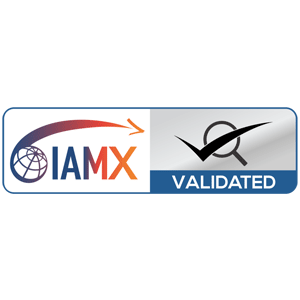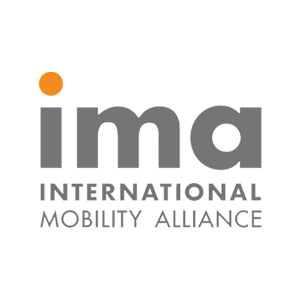
KUWAIT
Country Guide
Kuwait Country Information
Have you decided to Move to Kuwait?
Whether you’re planning a tourist trip or a business relocation, here’s what you should know before you go.
General Overview
- Official country name: State of Kuwait
- Location: Middle East, Arabian Peninsula
- Capital city: Kuwait City
- Official language: Arabic
- Currency: Kuwaiti Dinar (KWD)
- Time zone: UTC+3 (Arabian Standard Time)
Culture & Traditions
- Key customs: Strong Islamic traditions influence daily life. Respect for elders is important, and public displays of affection should be avoided. Hospitality is a core value, and offering refreshments to guests is common.
- Official public holidays: 9 days
- New Year’s Day (January 1)
- National Day (February 25)
- Liberation Day (February 26)
- Eid al-Fitr (varies by lunar calendar, 2-3 days)
- Eid al-Adha (varies by lunar calendar, 2-3 days)
- Islamic New Year (varies by lunar calendar)
- Prophet Muhammad’s Birthday (varies by lunar calendar)
- Traditional dishes and local drinks:
- Machboos (spiced rice with meat)
- Mutabbaq Samak (fish with rice)
- Harees (wheat and meat dish)
- Gahwa (Arabic coffee) and Karak tea
- Languages spoken daily: Arabic (official), English widely spoken in business and expat communities. Common expressions include:
- “As-salamu alaykum” (peace be upon you, greeting)
- “Shukran” (thank you)
- “Marhaba” (hello)
- Clothing and behavioral norms: Modest dress is expected, especially for women. Men typically wear a dishdasha (long white robe), while women may wear an abaya. Public behavior should be respectful and conservative.
Demographics & Society
- Total population: Approximately 4.4 million
- Major ethnic groups: Kuwaitis (30%), expatriates from South Asia, the Middle East, and the West (70%)
- Main religion: Islam (Sunni majority, with a Shia minority)
- General safety level: High, with low crime rates, but some risks from regional tensions.
- Attitude towards foreigners and diversity: Kuwait is a diverse society with a large expat population. While welcoming, Kuwaiti society has strong cultural and religious traditions that should be respected.
Key Cities & Regions
- Capital city: Kuwait City (approx. 3 million people) – Economic and cultural hub, home to modern skyscrapers and traditional souks.
- Hawalli (approx. 1 million people) – Known for its expat communities and commercial centers.
- Farwaniya (approx. 950,000 people) – A residential and business district with many shopping centers.
- Al Ahmadi (approx. 750,000 people) – Center of Kuwait’s oil industry.
- Must-visit regions and landmarks:
- Kuwait Towers – Iconic landmark of the country
- The Grand Mosque – Largest mosque in Kuwait
- Al Shaheed Park – Green oasis in the city
- Failaka Island – Historical island with archaeological sites
Weather & Climate
- Type of climate: Desert climate, extremely hot summers and mild winters.
- Average seasonal temperatures:
- Summer (June-August): 45-50°C
- Winter (December-February): 10-20°C
- Spring/Autumn: 25-35°C
- Best times to visit: November to March, when temperatures are mild.
Practical Information
- Entry requirements:
- Visa required for most nationalities (e-visa available for some countries)
- GCC citizens can enter without a visa
- Passport validity of at least six months required
- Local transportation options:
- Taxis and ride-hailing apps (Uber, Careem)
- Limited bus network
- No train or metro system
- Cost of living:
- Housing: Rent for a one-bedroom apartment in the city center 500-800 KWD
- Food: Dining out is affordable, with local meals costing around 2-5 KWD
- Transport: Taxi fares start at 1 KWD
- Electrical outlets and voltage:
- Voltage: 240V
- Plug types: G (same as UK)
- Emergency numbers:
- Police, Fire, Ambulance: 112
Visitor Tips
- Gestures to avoid:
- Avoid using the left hand for greetings or eating.
- Do not point the soles of your feet at others.
- Public displays of affection are frowned upon.
- Specific regulations:
- Alcohol is strictly prohibited.
- Dress modestly in public spaces.
- Public criticism of the government is illegal.
- Tips for integrating locally:
- Learn a few Arabic phrases to show respect.
- Engage with the expat community for easier adaptation.
- Understand local business etiquette, such as addressing people formally.
- Potential risks or important considerations:
- Extreme heat in summer requires precautions (hydration, sun protection).
- Sandstorms can occasionally disrupt travel.
- Some social restrictions may feel limiting for Westerners.
Why Moving to Kuwait is a Great Opportunity for Expats
Kuwait is an excellent destination for expats considering relocation, whether for career advancement or a fresh start in a thriving economy. With its tax-free income, high salaries, and strong demand for skilled professionals, the country attracts individuals from around the world, especially in sectors like oil and gas, finance, healthcare, and education.
Beyond its economic benefits, Kuwait offers a high standard of living, with modern infrastructure, top-tier healthcare, and international schools catering to expat families. The country’s strategic location in the Middle East makes it an excellent hub for business and travel, with easy access to other Gulf countries and Asia. Additionally, its diverse expat community ensures a welcoming environment for newcomers.
However, relocating to a new country comes with challenges, from visa procedures to housing arrangements and cultural adaptation. That’s where Asia Relocation can help. We specialize in comprehensive relocation services, including visa processing, home search, school selection, and logistics support. Our team ensures a seamless transition, making your move to Kuwait stress-free and efficient.
If you’re planning a move to Kuwait, let Asia Relocation handle the complexities so you can focus on embracing new opportunities and experiences. Contact us today at asia-relocation.com to learn how we can assist you. 🚀














